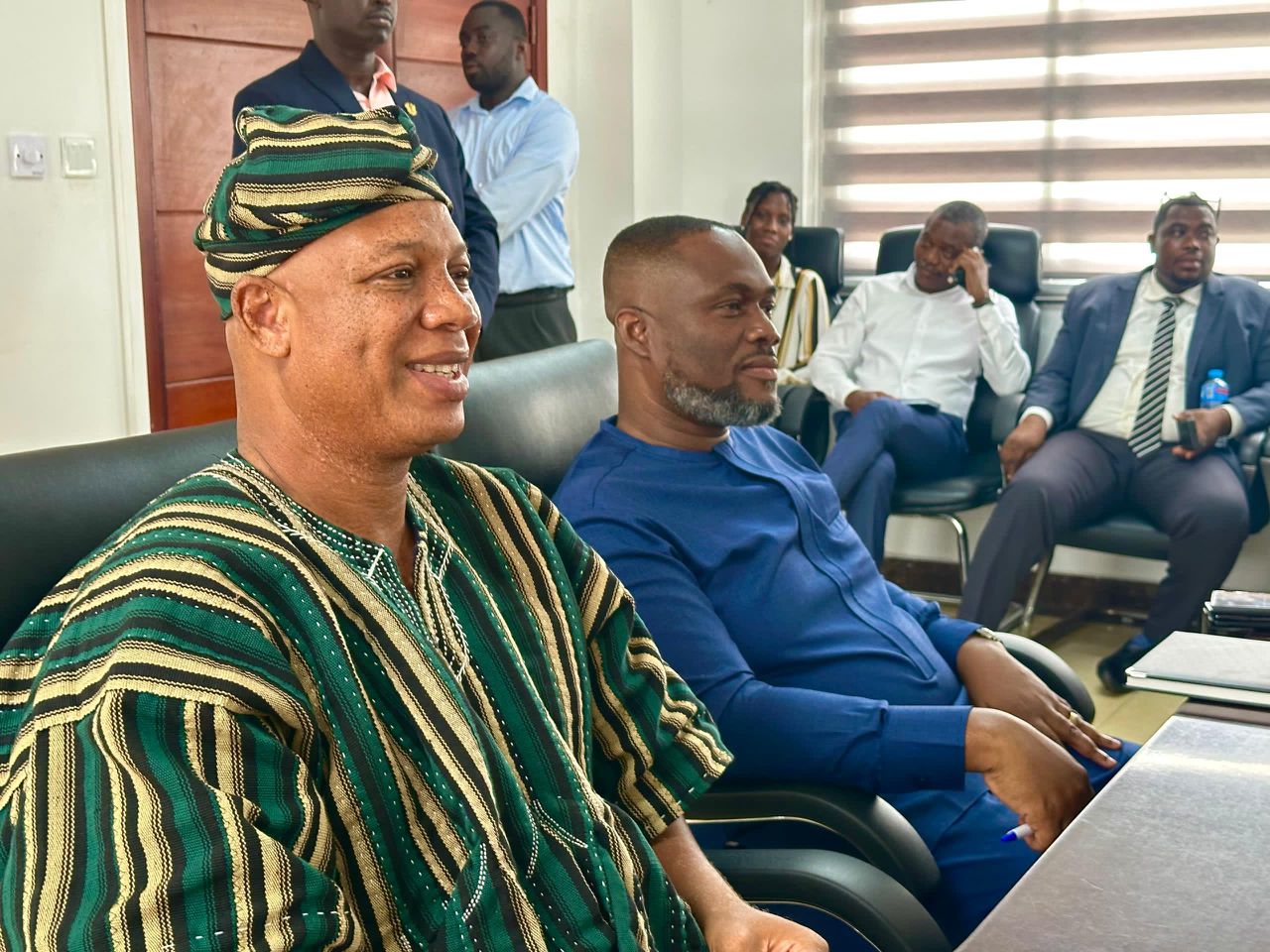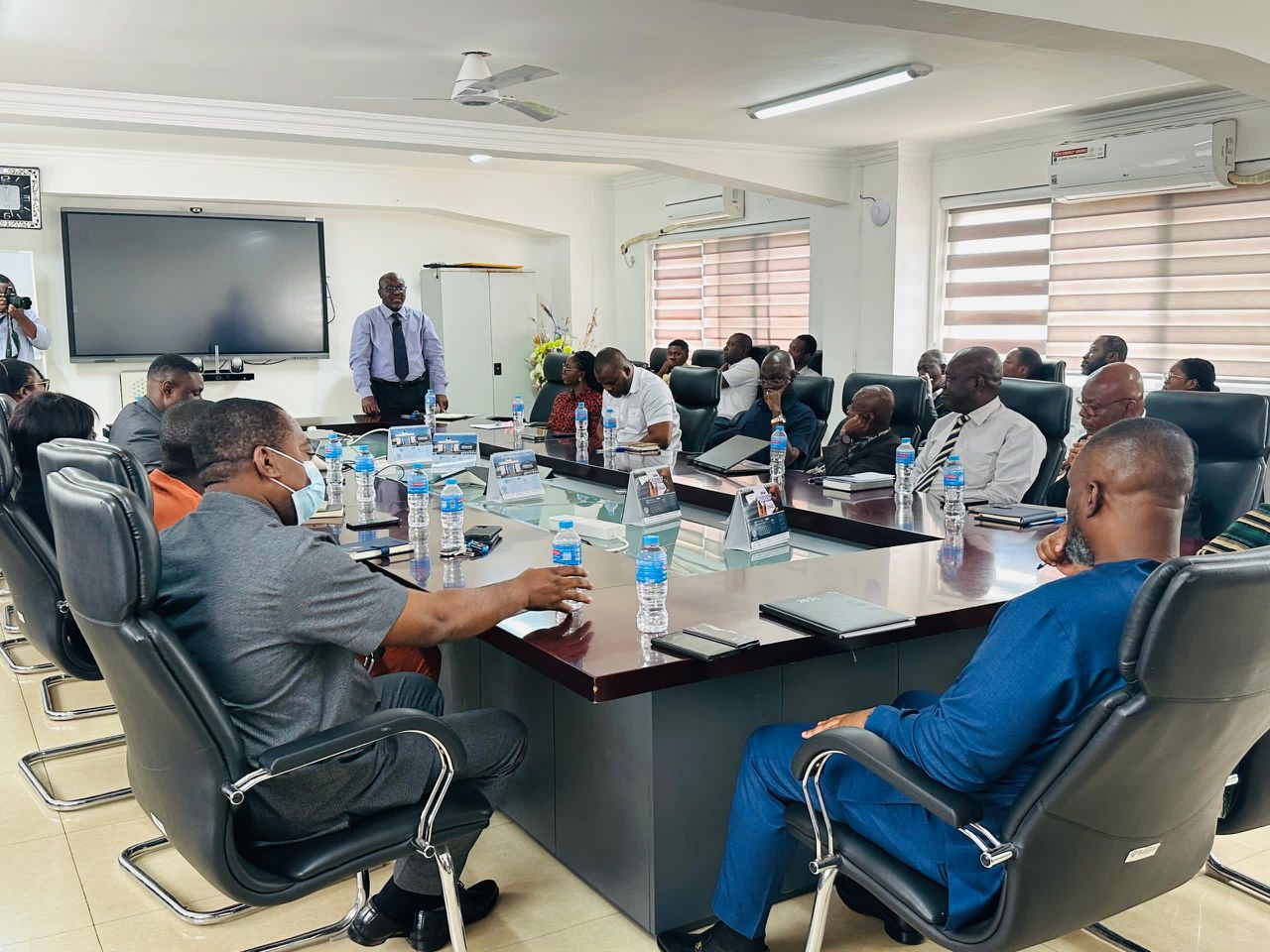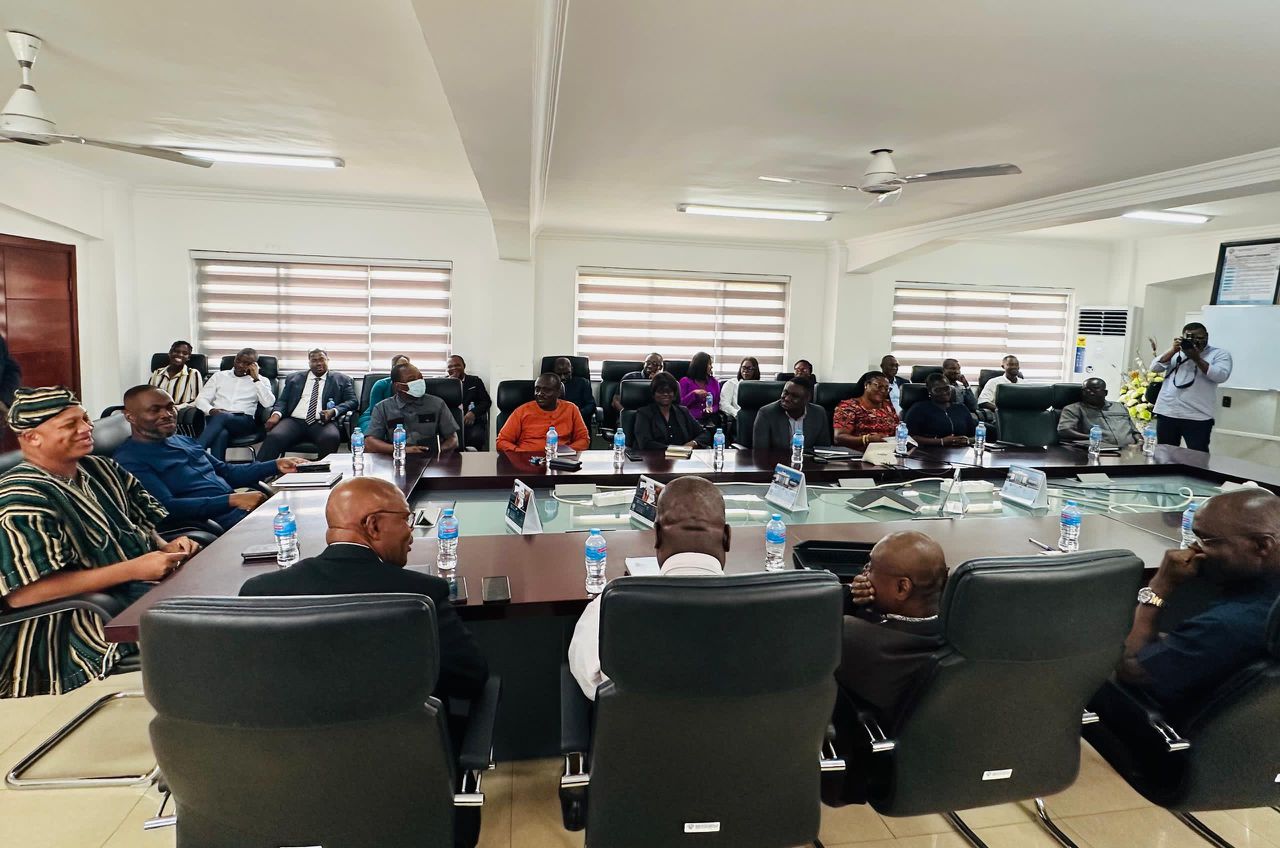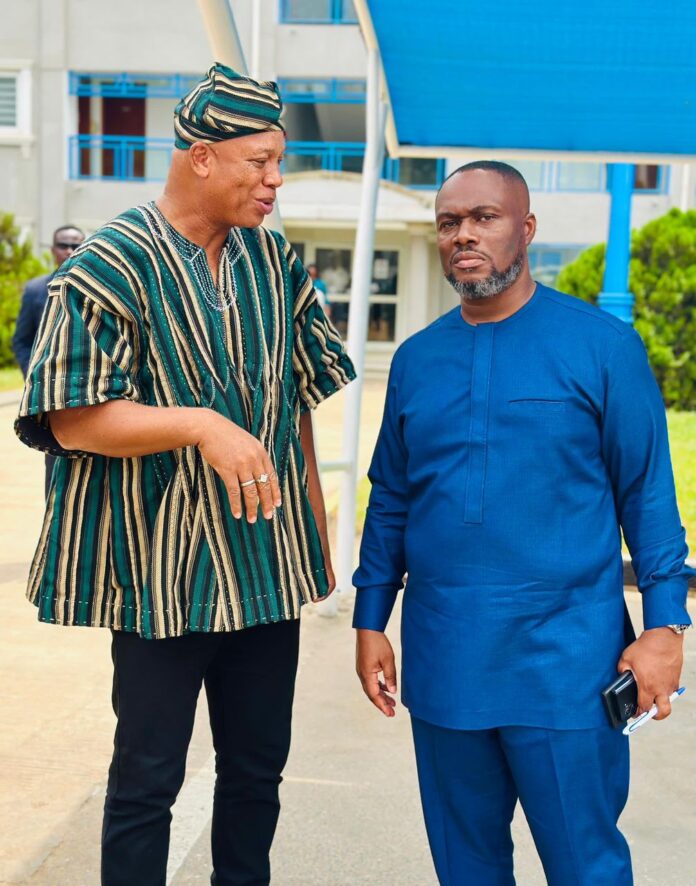The Minister for Works, Housing, and Water Resources, Kenneth Gilbert Adjei, has commended Ghana Water Limited (GWL) for its efforts in expanding urban water supply and improving service delivery.
He reaffirmed the government’s commitment to ensuring universal access to potable water following his working visit to the GWL Head Office in Accra.
During the visit, Mr. Adjei engaged with GWL’s management, led by Managing Director Adam Mutawakilu, to assess the company’s operations, challenges, and strategic initiatives aimed at enhancing urban water supply.
Speaking during the engagement, the minister emphasized the government’s dedication to providing the necessary resources and policy interventions to support GWL’s mandate.
“Access to clean water is a fundamental right, and we will work closely with stakeholders to improve infrastructure, address operational challenges, and enhance service delivery,” he stated.
He reiterated that water sector development remained a key priority for the government, with funding for infrastructure projects essential for expanding water supply networks nationwide.
Mr. Adjei acknowledged GWL’s crucial role in urban water supply and pledged the government’s support in addressing issues such as Non-Revenue Water (NRW) losses, infrastructure rehabilitation, and sustainable water management.
GWL’s Governance Structure and Operations
Providing an overview of the company’s governance framework, Mr. Mutawakilu explained that GWL operates under a Board of Directors with multiple divisions, including Water Treatment and Quality Management, Finance and Accounting, Business Development, and Regional Operations covering 15 operational regions.
He noted that GWL currently oversees 92 water systems, serving an estimated 17 million people, with a commitment to continuously improving service delivery, enhancing efficiency, and ensuring financial sustainability.

Key Projects and Infrastructure Investments
As part of efforts to enhance urban water supply, Mr. Mutawakilu highlighted significant projects undertaken by GWL. These include the expansion of transmission lines to improve primary transmission networks from Kpong to Tema, ensuring supply reliability.
Additionally, infrastructure rehabilitation efforts include replacing aging pumps, installing Automatic Voltage Regulators (AVRs), and dredging water intake points at Sekyere Hemang, Owabi, Winneba, and Nsawam.

Tackling Non-Revenue Water Challenges
Mr. Mutawakilu identified Non-Revenue Water (NRW) as a major challenge for GWL, with water losses due to leaks, theft, and metering inaccuracies significantly impacting revenue. He stressed the need for strategic interventions to minimize these losses and improve financial sustainability.
The government and GWL leadership reaffirmed their commitment to strengthening operational efficiency and ensuring sustainable water management to meet the growing demands of urban areas.

ALSO READ:

